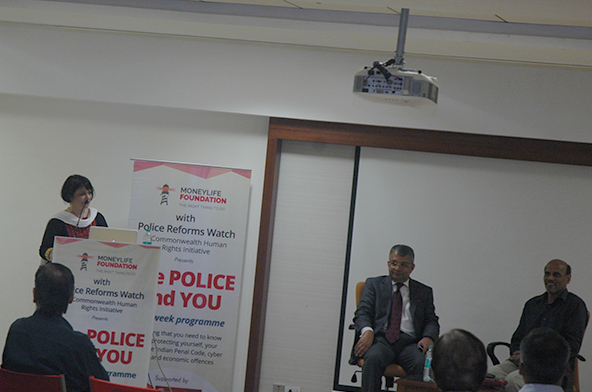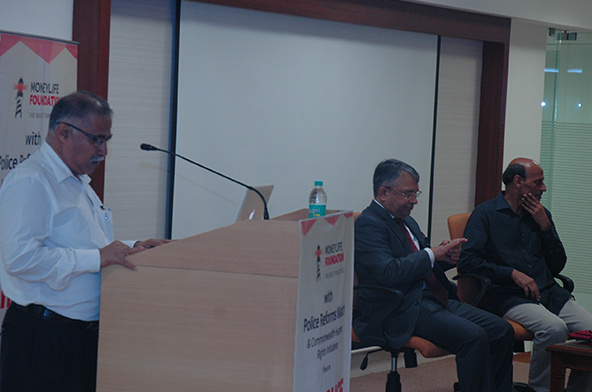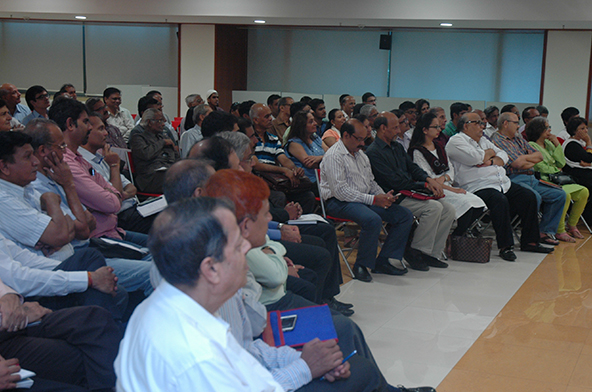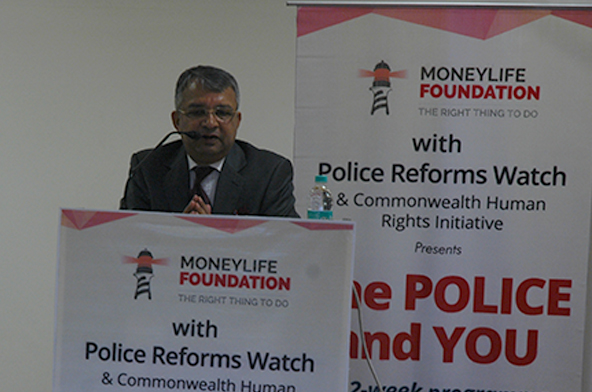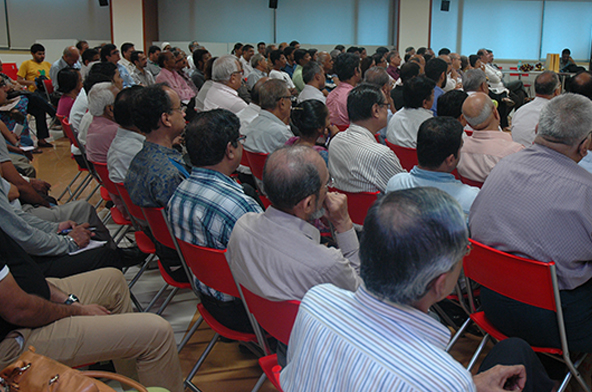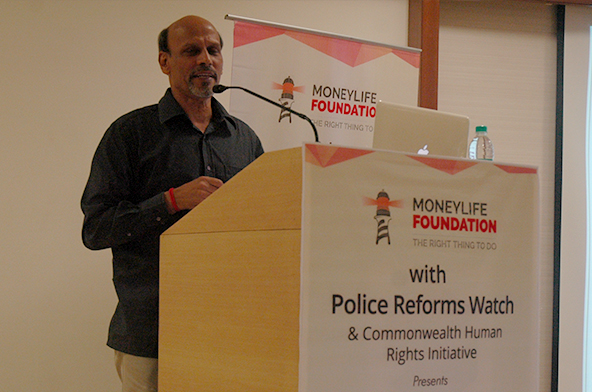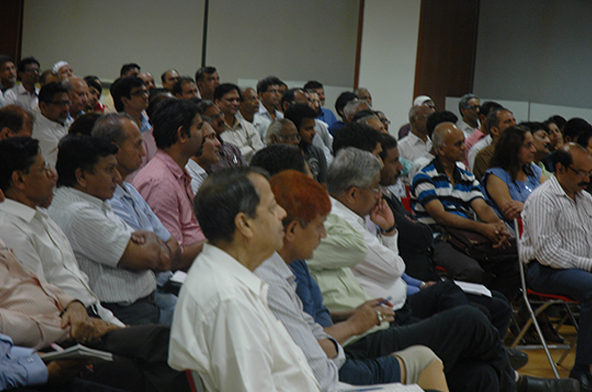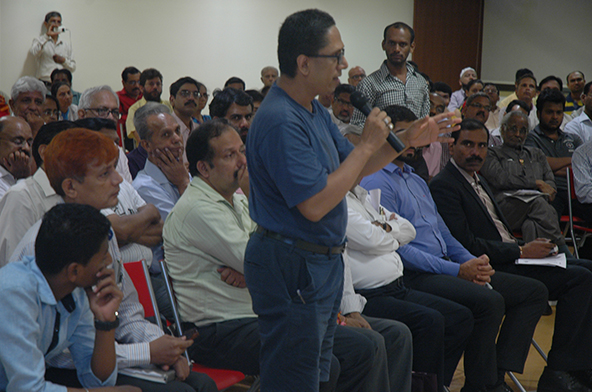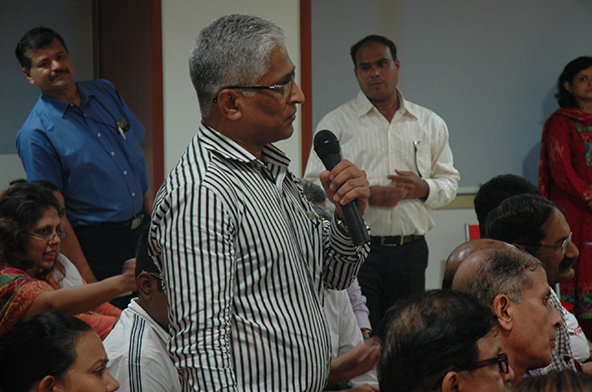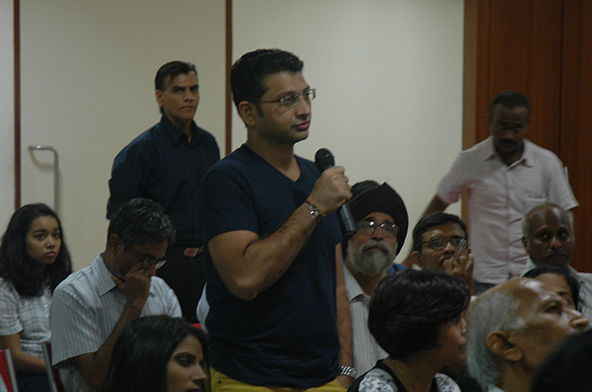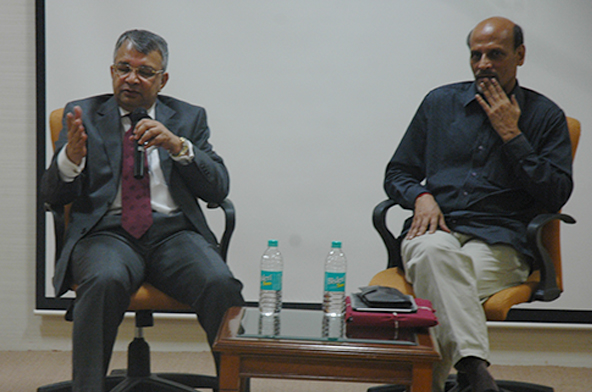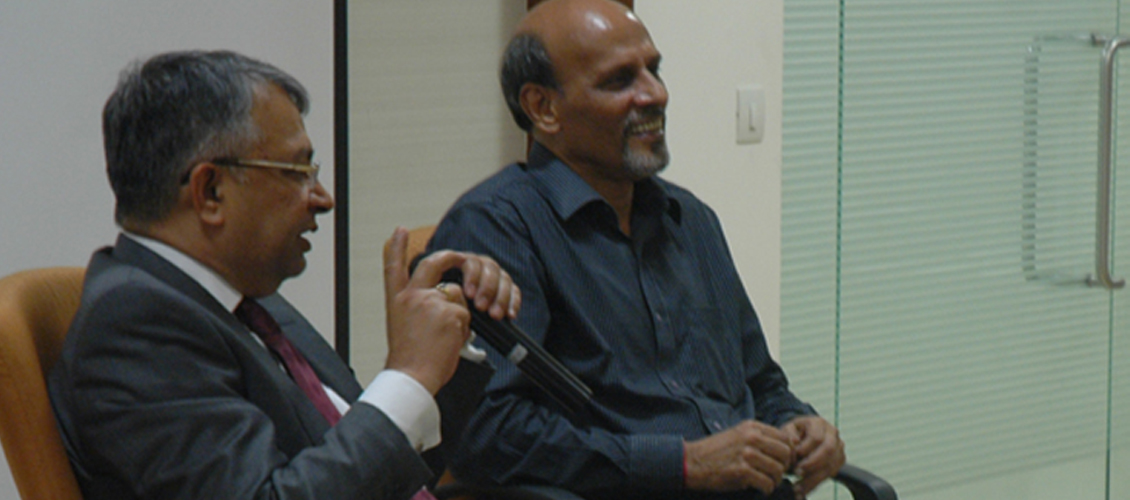
“The number of cases in courts are increasing because people are becoming aware about their right and not because law is being implemented or followed strictly. But at the same time, people are getting fed up with judiciary, increasing costs and police and enforcement agencies,” says Senior Advocate Satish Maneshinde. He was speaking at the fifth session under the “Police & You” series.
Moneylife Foundation with Police Reforms Watch with support from Saraswat Bank have launched the 12-week program (every Wednesday) that aims to spread knowledge about protecting yourself, your rights, the Indian Penal Code (IPC), cybercrime and economic offences. This was the fifth such session.
Adv Maneshinde, one of the top lawyers practising in criminal matters, said, “Judiciary is the most neglected pillar of our democracy. That is why the infrastructure in courts, especially in power courts is very poor and pathetic. There are maximum number of cases pending in lower cases, which are functioning in inappropriate conditions. And we have to blame the system for pendency of cases. Improving infrastructure in judiciary is the way for modernising India.”
The event was held in the well-appointed auditorium of Saraswat Bank headquarters, Eknath Thakur Bhavan.
The fifth session of the 12-week series on “The Police & You: Arrest and Detention, Police Interrogation and Questioning” was conducted by Adv Maneshinde and Ramesh Mahale, who retired from Mumbai Police as Senior Inspector.
Mr Mahale, who was the chief investigating officer in the 26/11 Mumbai Terror Attack case, explained the procedures involved in arrest, detention and interrogation. “One of the major issues faced by Police while investigating or filing a charge sheet before a court is lack of knowledge, especially new changes in law and decisions of the courts. Even the government and police department are reluctant to learn about new changes.
For example, as per changes in section 46(4) in the Code of Criminal Procedure (CrPC), Police cannot arrest a woman after sunset until sunrise. Under exceptional circumstances, a lady police officer, with written permission from the Metropolitan Magistrate can arrest the woman concerned,” he said.
Similarly, as per changes in CrPC that took place from 1 November 2011, Police are not supposed to arrest a person for an offense punishable for jail term of seven years or less. But most of the time, these are not followed by Police, Mr Mahale said.
Mr Mahale, who has put in 30 years of unblemished service and secured 688 rewards and commendatory notes during his career, also expressed his concern about custodial deaths.
According to the statistical data on custodial deaths, during 1999 to 2013, a total 1,418 deaths took place in police custody or disappearance of persons from custody across the country. Out of this, 333 deaths occurred in Maharashtra alone. The state also recorded the highest number of custodial deaths of 30 in 2015, out of which four took place in Mumbai, Mr Mahale said.
Section 176 (1) A of the CrPC provides for the police station to inform the nearest judicial magistrate about a death in custody. Under this provision, the magistrate is empowered to hold inquests by ordering a post mortem of the body within two days. Based on the same provision, the magistrate can direct an inquiry thereafter. However, the Maharashtra government issued a circular to police stations across the state informing about this provision only on 3 May 2016.
Mr Mahale then informed the audience about various provisions and laws about arrest, detention and deaths in police custody. He also described the procedure for custodial inquiry and interrogation.
The retired police officer, who was awarded the President’s Police Medal for Meritorious Service in 2011, shared his experiences during the 26/11 Mumbai Terror Attack case, inquiry of Ajmal Kasab and other cases he had handled as investigation officer.


